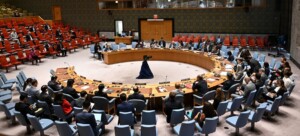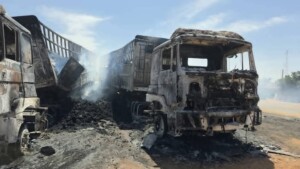Eleven health centres closed in Darfur
A lack of funding forces humanitarian organisations to either hand over or close down their health facilities in some parts of Sudan, including clinics in Zamzam camp and El Salam camp.
A lack of funding forces humanitarian organisations to either hand over or close down their health facilities in some parts of Sudan, including clinics in Zamzam camp and El Salam camp.
The latest Sudan Health Sector Quarterly bulletin reports that the Federal Ministry of Health and the World Health Organization (WHO) assessed 60 health facilities in North, South and West Darfur, Blue Nile and South Kordofan states. They found that eleven clinics have already closed and 49 are at risk of closure.
The bulletin said that 769,000 people – including displaced people and host communities – in these states may face significant difficulties in accessing primary health care services. Funding shortages have caused the problem, according to the bulletin, and $7 million is needed to keep these facilities running for one year.
The national NGO Humanitarian Aid and Development has announced that it will be unable to continue providing services in four clinics in Darfur, beyond the end of November, owing to funding restraints. Of the four clinics, three are in Zamzam camp near El Fasher city and one is in El Salam camp. An estimated 15,000 displaced people will be affected when these four facilities close. Other organisations, such as the international organisation Relief International, will continue providing health services in Zamzam camp.
'All these factors could increase morbidity and mortality and the risk of epidemics in these states.'
Funding available for health sector activities under the Sudan Humanitarian Response Plan has been decreasing since 2011. According to the quarterly bulletin, consequences of funding shortages include people not being able to access health services or buy medicine; no access to immunisation services; less assistance in the control of communicable diseases and outbreaks; and lack of referrals of complicated cases to other facilities.
The current Humanitarian Response Plan, launched in July, is an appeal for $952 million and has a larger focus on the most vulnerable people than last year's plan.
Expensive medicines
Doctor Nasri Margas, chairman of the pharmacies’ division of consumer protection in Sudan, told Radio Dabanga in an interview that the recent liberation of the fuel market will increase the prices for medicines.
A number of pharmacies already withdrew from the pharmaceutical business because of their inability to import goods. “ Such increases in medicine prices will increase the suffering of the people with low income,” Margas said.
A kidney injection has amounted to SDG800 ($122), he reported.











 and then
and then